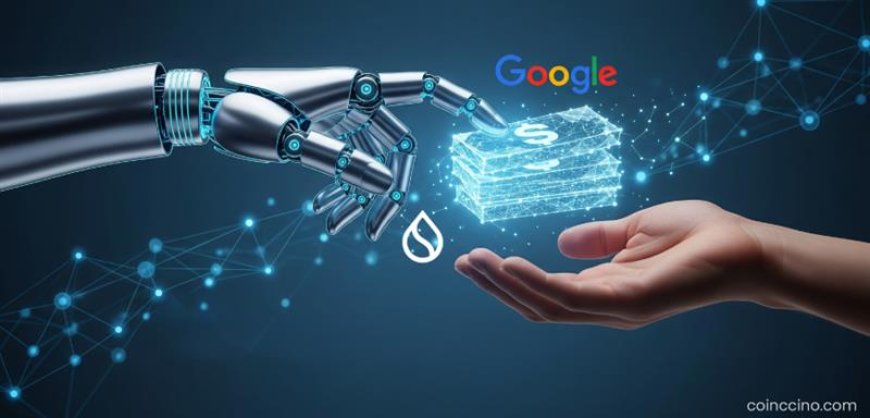Google and Sui Network Collaborate on Agentic Payments Protocol to Power AI-Driven Transactions
Google has selected Sui Network as one of the launch partners for its new Agentic Payments Protocol (AP2), which is being designed to enable AI agents to conduct financial transactions on behalf of users. Built by Mysten Labs, Sui is known for fast, programmable transactions and privacy-focused identity tools. The announcement briefly lifted SUI’s price, though market reaction was muted, as many investors appear waiting to see real-world deployment.

Market Context
As AI capabilities grow, there’s increasing demand for systems that let AI agents not just suggest transactions, but execute, manage balances, settle payments, etc., in real time. Blockchains that combine speed, identity/privacy, and programmable logic are being positioned to fill that role. AP2 fits into a broader trend: merging blockchain infrastructure with artificial intelligence to support more autonomous financial operations. Sui is among several Layer-1 protocols being watched for this kind of integration.
Technical Details
- Agentic Payments Protocol (AP2): Also known as the Intermediary Payment Protocol, it aims to set a standard for how AI systems can securely manage payments, balances, and settle in real time.
- Role of Sui: Mysten Labs’ Sui Network is valued for its high transaction speed, programmability, and privacy-centered identity features. It will be part of Google’s AP2 rollout.
- Market Reaction: SUI token did see a short-lived bump following the announcement, but most gains were given back, indicating that investors are cautious and possibly looking for concrete implementations.
Analyst Perspectives
Analysts see this collaboration as promising, especially because Google’s backing could bring visibility, credibility, and adoption. However, they caution that many technical, regulatory, and UX (user experience) challenges remain. For example: how will identity/privacy be managed? What are the rules for AI agents executing payments (liability, fraud, fraud detection)? Also, the chain must demonstrate it can handle the volume at scale and in compliance with financial regulations.
Global Impact Note
If AP2 succeeds, it could reshape how people interact with finance: enabling intelligent agents to manage recurring payments, subscriptions, or financial tasks autonomously. This may have implications globally—especially in markets with many unbanked or under-banked users—by simplifying financial access. On the other hand, it also raises questions about oversight, misuse, and risk if not properly regulated.
Thoughts & Knowledge
- Why this matters: If AP2 works as intended, it helps reduce friction in financial tasks—like adjusting recurring payments, paying bills automatically, or splitting costs—especially when mediated by AI. Systems like this could also help drive adoption of blockchain-based payments beyond the crypto-native crowd.
- Challenges to watch:
- Regulation & liability: If an AI agent makes a wrong payment, or fraud occurs, who is responsible—user, software, platform?
- Privacy & identity: Using AI agents means more trust in identity systems. Sui’s privacy-focused identity tools will need to prove themselves robust.
- User trust & UX: For non-technical users, trusting agents to move money is a big leap. Interfaces, transparency, rollback or error correction will be important.
- Competitive landscape: Sui is not alone. Other Layer-1s and infrastructure projects are aiming to combine blockchain + AI agent functionality. Partnerships with big tech (like Google) can tip the scales—both in terms of developer interest and real-world adoption.
- Potential upside: If AP2 picks up, Sui’s network may benefit from increased transactions, greater utility for its token, better visibility, and more developer activity. It might also push the idea of “payments as a service” via AI in new directions.